
Majestic Pyrenees Mountains
The Pyrenees Mountains in Spain are a spectacular range that forms a natural border between Spain and France. This stunning region offers breathtaking landscapes, rich cultural heritage, and a plethora of outdoor activities. Whether you're a nature lover, an adventurer, or a history enthusiast, the Pyrenees have something for everyone. The Spanish Pyrenees are renowned for their diverse flora and fauna. The region's national parks, such as Ordesa y Monte Perdido and Aigüestortes i Estany de Sant Maurici, provide excellent opportunities for hiking, wildlife spotting, and exploring pristine natural beauty. The rugged mountains, deep valleys, and crystal-clear lakes create an enchanting backdrop for your adventures. In addition to its natural wonders, the Pyrenees are home to charming villages that showcase the area's rich history and traditions. Visit the medieval town of Jaca, known for its impressive cathedral and citadel, or explore the picturesque village of Aínsa with its cobblestone streets and historic buildings. Don't miss the chance to experience local cuisine, featuring hearty dishes like migas and chuleton, and sample regional wines. For those seeking adrenaline-pumping activities, the Pyrenees offer excellent skiing and snowboarding in the winter, with resorts like Baqueira-Beret catering to all skill levels. In the warmer months, try your hand at rock climbing, mountain biking, or white-water rafting. Whatever your interests, the Pyrenees Mountains in Spain promise an unforgettable experience.
Local tips in Pyrenees Mountains
- Visit during spring or autumn for mild weather and fewer crowds.
- Bring sturdy hiking boots and layered clothing to adapt to changing mountain conditions.
- Try local dishes and regional wines for an authentic culinary experience.
- Book accommodations in advance if traveling during the peak ski season.
- Learn a few basic Spanish phrases to enhance your interactions with locals.
Majestic Pyrenees Mountains
The Pyrenees Mountains in Spain are a spectacular range that forms a natural border between Spain and France. This stunning region offers breathtaking landscapes, rich cultural heritage, and a plethora of outdoor activities. Whether you're a nature lover, an adventurer, or a history enthusiast, the Pyrenees have something for everyone. The Spanish Pyrenees are renowned for their diverse flora and fauna. The region's national parks, such as Ordesa y Monte Perdido and Aigüestortes i Estany de Sant Maurici, provide excellent opportunities for hiking, wildlife spotting, and exploring pristine natural beauty. The rugged mountains, deep valleys, and crystal-clear lakes create an enchanting backdrop for your adventures. In addition to its natural wonders, the Pyrenees are home to charming villages that showcase the area's rich history and traditions. Visit the medieval town of Jaca, known for its impressive cathedral and citadel, or explore the picturesque village of Aínsa with its cobblestone streets and historic buildings. Don't miss the chance to experience local cuisine, featuring hearty dishes like migas and chuleton, and sample regional wines. For those seeking adrenaline-pumping activities, the Pyrenees offer excellent skiing and snowboarding in the winter, with resorts like Baqueira-Beret catering to all skill levels. In the warmer months, try your hand at rock climbing, mountain biking, or white-water rafting. Whatever your interests, the Pyrenees Mountains in Spain promise an unforgettable experience.
When is the best time to go to Pyrenees Mountains?
Iconic landmarks you can’t miss
Parc national des Pyrénées
Discover the stunning landscapes and rich biodiversity of Parc national des Pyrénées, a paradise for nature lovers and adventure seekers in France.
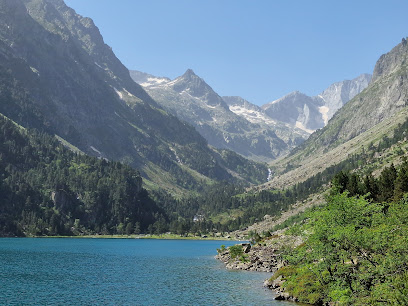
Loarre Castle
Discover the enchanting beauty and rich history of Loarre Castle, a medieval fortress offering breathtaking views of the Pyrenees and captivating architecture.
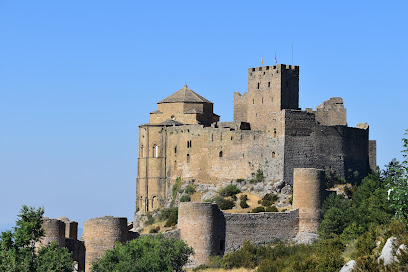
Ordesa y Monte Perdido National Park
Experience the breathtaking beauty and diverse ecosystems of Ordesa y Monte Perdido National Park, a natural wonder in the Spanish Pyrenees.
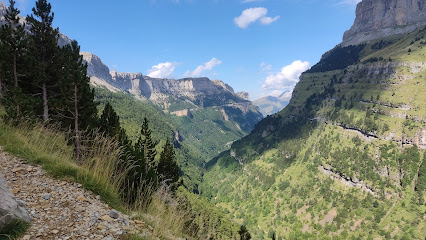
Regional Park of the Catalan Pyrenees
Explore the stunning landscapes and rich biodiversity of the Regional Park of the Catalan Pyrenees for an unforgettable nature escape.
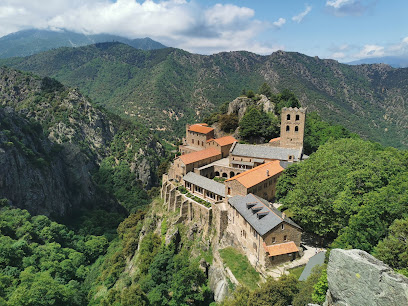
Pont d'Espagne
Discover the breathtaking beauty of Pont d'Espagne, a stunning bridge and hiking paradise nestled in the heart of the Pyrenees mountains.
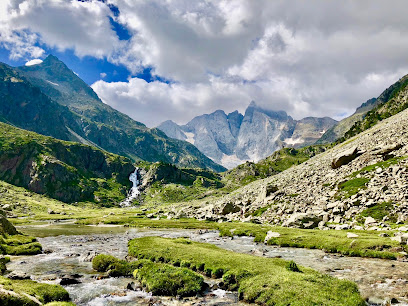
Aigüestortes i Estany de Sant Maurici National Park
Explore the stunning landscapes and rich biodiversity of Aigüestortes i Estany de Sant Maurici National Park in the heart of the Catalan Pyrenees.
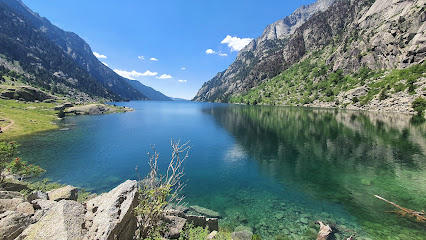
Monasterio nuevo de San Juan de la peña
Explore the breathtaking Monasterio Nuevo de San Juan de la Peña, a historical gem set in the stunning Pyrenees mountains, perfect for culture and nature lovers alike.
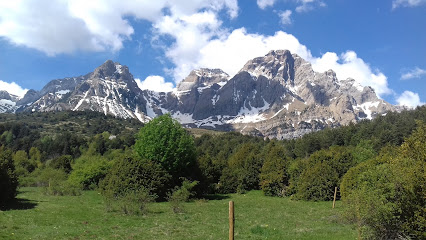
Saut deth Pish
Discover the enchanting beauty of Saut deth Pish, a breathtaking waterfall in the heart of the Pyrenees, perfect for nature lovers and adventure seekers.
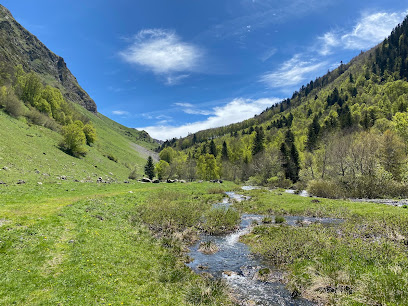
Pyrenees
Explore the breathtaking beauty of the Pyrenees, a stunning mountain range offering endless adventures and rich cultural experiences.
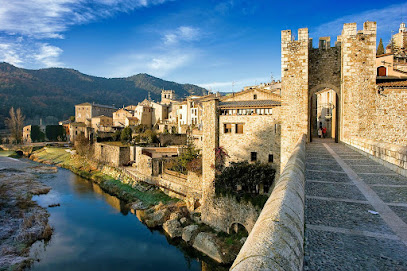
Ibón de Piedrafita
Explore the breathtaking beauty of Ibón de Piedrafita, a stunning alpine lake in Huesca, perfect for hiking, wildlife watching, and relaxation.
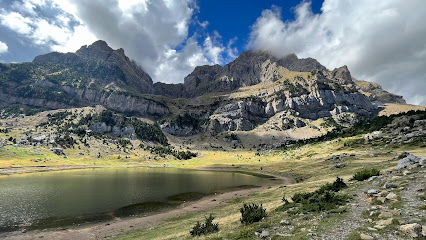
Parc Natural de l'Alt Pirineu
Discover the stunning landscapes and rich biodiversity of Parc Natural de l'Alt Pirineu for an unforgettable adventure in the heart of the Pyrenees.
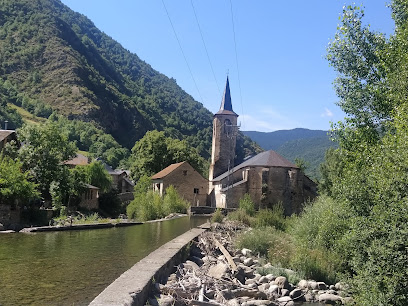
Requesens Castle
Uncover the rich history and breathtaking views at Requesens Castle, a medieval fortress in the heart of Girona, Spain.
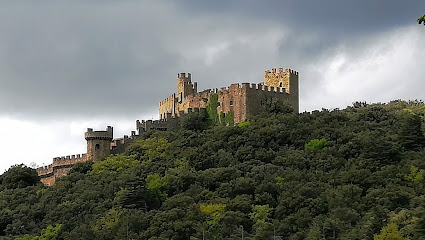
Cascada del Estrecho
Explore the breathtaking Cascada del Estrecho in Ordesa y Monte Perdido National Park, a must-visit natural wonder in the heart of the Pyrenees.
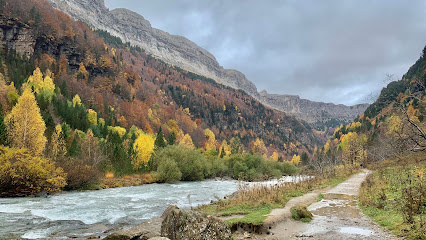
Pic d'Ansabère
Explore the breathtaking views and diverse landscapes of Pic d'Ansabère, a majestic peak in the French Pyrenees perfect for adventurers and nature lovers.
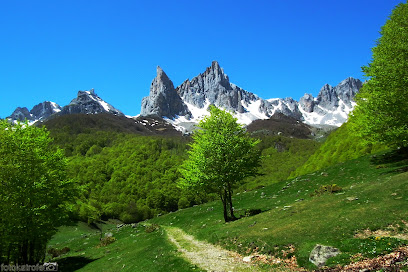
Pre-Pyrenees
Explore the stunning Pre-Pyrenees, where majestic mountain landscapes meet rich Catalan culture and endless outdoor adventures await.
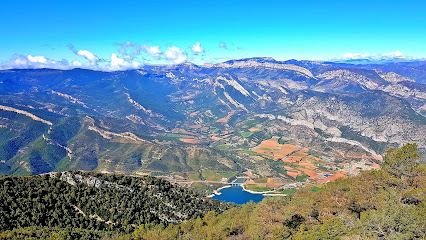
Unmissable attractions to see
Loarre Castle
Explore the enchanting Loarre Castle, a stunning medieval fortress in Huesca offering breathtaking views and rich historical significance.
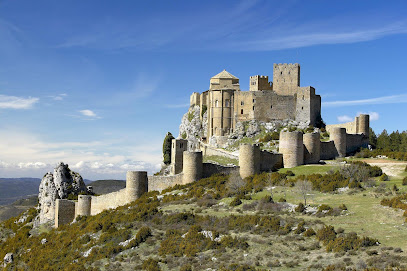
Ordesa y Monte Perdido National Park
Explore the breathtaking landscapes of Ordesa y Monte Perdido National Park, a UNESCO Biosphere Reserve in the heart of the Pyrenees, perfect for nature lovers.
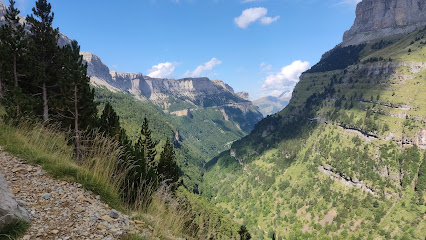
Pyrénées Andorra
Explore Pyrénées Andorra in the heart of Andorra la Vella for an unforgettable shopping experience filled with fashion, dining, and local culture.

La Molina
Discover La Molina, the ultimate adventure destination in the Catalan Pyrenees, offering skiing, hiking, and cycling in a stunning natural setting.
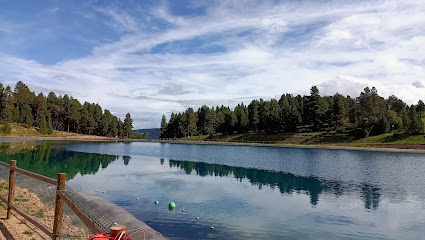
Astun
Discover the captivating beauty and thrilling adventures of Astun, a premier ski resort and hiking area nestled in the stunning Pyrenees mountains.
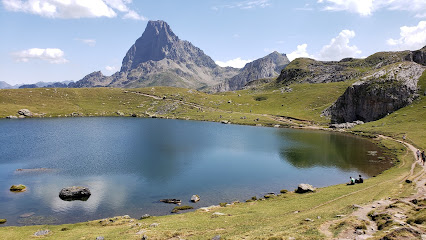
Estació Vallter 2000
Experience unforgettable adventures in Estació Vallter 2000, the ultimate ski resort and outdoor playground in the stunning Pyrenees mountains.
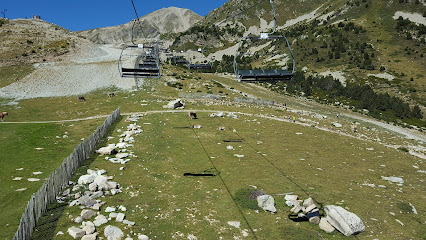
Baqueira Beret SA
Experience the magic of Baqueira Beret, a premier ski resort in the Pyrenees, offering thrilling slopes, stunning landscapes, and vibrant village life.
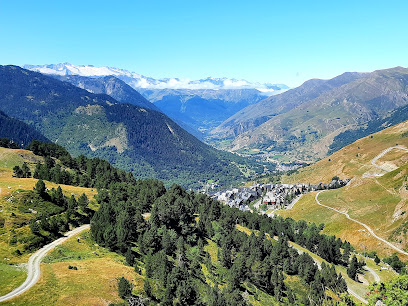
Aran Park - Parc Animalier
Discover Aran Park, a captivating animal park in Spain that offers immersive wildlife experiences for families and nature enthusiasts.
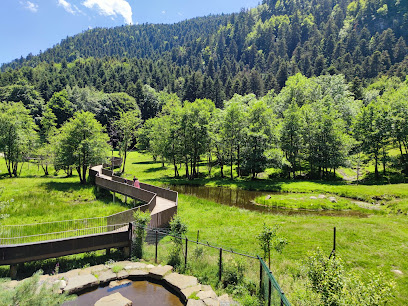
ARAMÓN Cerler
Discover Aramón Cerler, a breathtaking ski resort in the Pyrenees, combining thrilling slopes, stunning views, and delightful dining experiences.
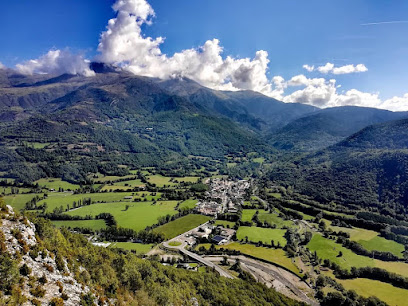
Serra del Montsec
Discover the breathtaking landscapes and diverse wildlife of Serra del Montsec, a nature preserve in Lleida, Spain, perfect for outdoor enthusiasts and adventure seekers.
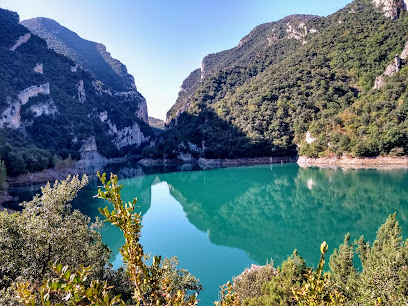
Saut deth Pish
Experience the breathtaking beauty of Saut deth Pish, a majestic waterfall nestled in the stunning landscapes of Lleida, perfect for nature lovers.
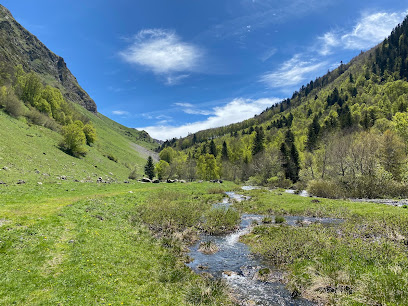
Parque Natural Posets Maladeta
Explore the stunning Parque Natural Posets Maladeta, a perfect destination for hiking, nature walks, and breathtaking mountain scenery in Spain's Huesca region.
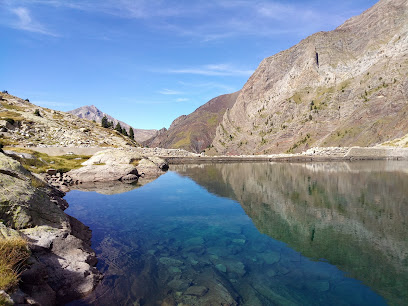
The Roman Baths of Dorres
Discover the ancient relaxation at the Roman Baths of Dorres, where history and wellness meet amidst the stunning Pyrenees mountains.
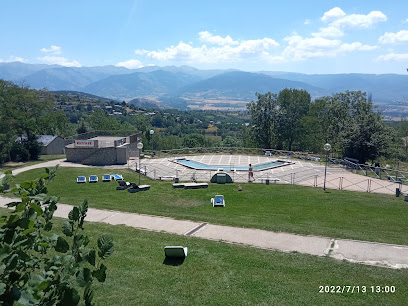
Santuario San Miguel in Excelsis
Discover the tranquil beauty of the Sanctuary of San Miguel in Excelsis, where spirituality meets stunning natural landscapes in Navarre.
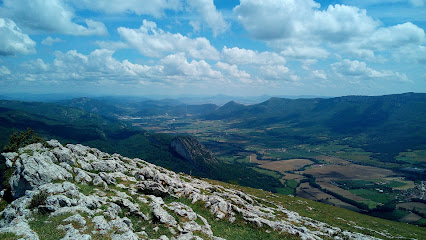
Ibón de Piedrafita
Discover the breathtaking beauty of Ibón de Piedrafita, an alpine lake perfect for hiking and serene outdoor escapes in the heart of the Pyrenees.
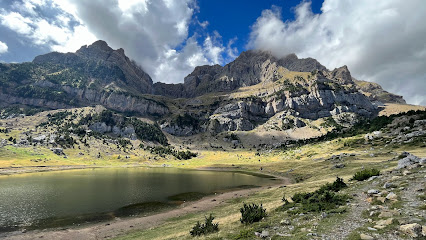
Essential places to dine
Refugio de Montgarri
Discover Refugio de Montgarri: A scenic restaurant offering exquisite local dishes amidst Lleida's stunning mountain landscapes.
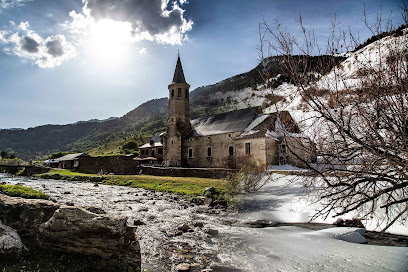
Era Coquela
Discover exquisite Catalan cuisine at Era Coquela in Vielha - where fine dining meets local tradition in a delightful ambiance.
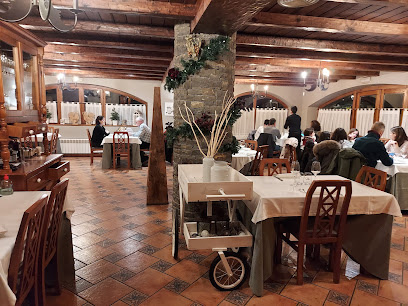
Parador de Bielsa
Discover tranquility at Parador de Bielsa, your gateway to adventure in the breathtaking Pyrenees with exquisite dining and serene accommodations.

Boixetes de Cal Manel
Experience authentic Catalonian cuisine at Boixetes de Cal Manel, where tradition meets flavor in a cozy setting.
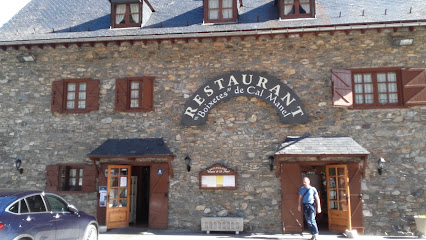
Callizo
Experience exceptional Mediterranean and Spanish fine dining at Callizo in Aínsa – where creativity meets tradition.
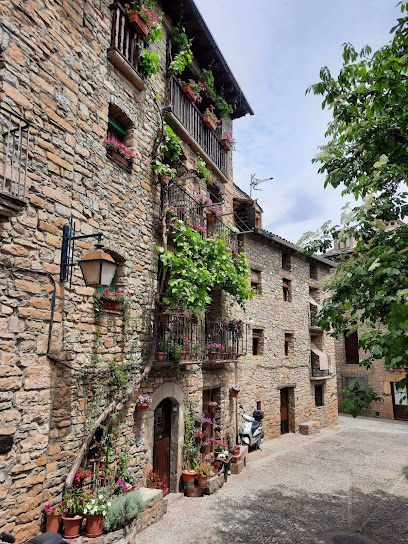
Hostal Restaurante Asador Pañart
Discover comfort and authentic cuisine at Hostal Restaurante Asador Pañart in beautiful Huesca, Spain.

Casa Rufus
Experience authentic Spanish flavors at Casa Rufus in Gessa - where every meal is a celebration of tradition and taste.
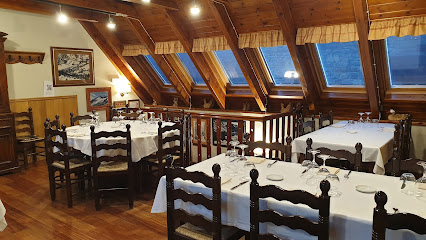
Refugio de Lizara
Discover Refugio de Lizara: A charming mountain cabin offering exquisite local cuisine amidst breathtaking Pyrenean landscapes.
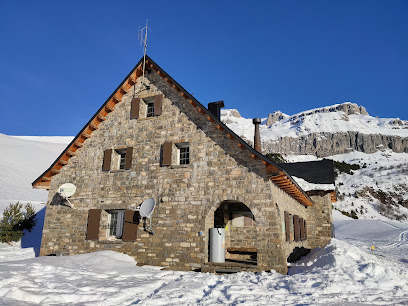
PINOTAGE - RESTAURANTE & CAFE - ARTIES
Discover exquisite fusion cuisine at PINOTAGE - RESTAURANTE & CAFE in Arties, offering breathtaking views and unforgettable dining experiences.
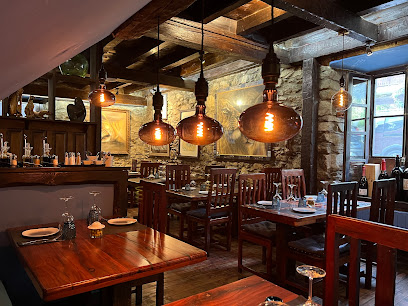
Es Arraïtzes Restaurant
Discover the essence of Peru at Es Arraïtzes, where traditional flavors meet modern fusion cuisine in a stunning setting.
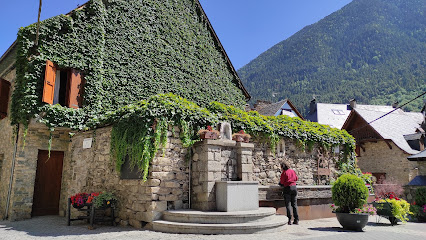
Restaurant Refugi Cap del Rec
Experience delicious Catalonian cuisine amidst breathtaking mountain views at Refugi Cap del Rec in Lles de Cerdanya.
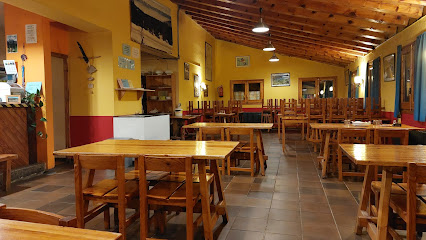
Restaurante La Catedral
Discover authentic Spanish cuisine at Restaurante La Catedral in Roda de Isábena - where tradition meets taste in a charming setting.
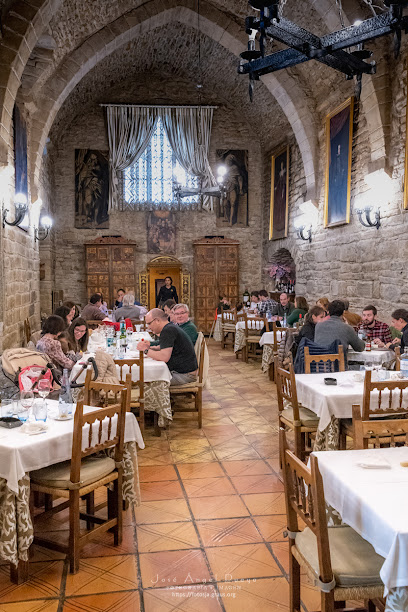
Cinco Jotas Grill Baqueira
Experience exquisite Spanish cuisine amidst stunning mountain vistas at Cinco Jotas Grill in Baqueira Beret.
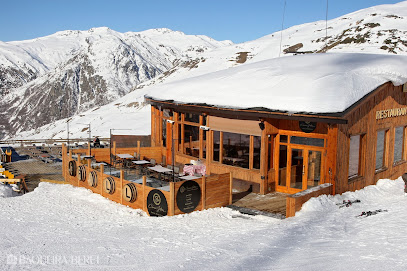
Pyrenees
Discover exquisite Mediterranean cuisine at Pyrenees Restaurant in Ibiza, where every dish is crafted with passion and local ingredients.
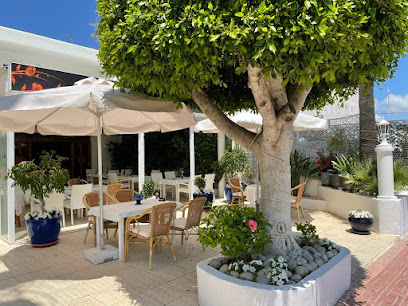
Hôtel des Pyrénées
Experience exquisite French and Mediterranean cuisine at Hôtel des Pyrénées in Saint-Jean-Pied-de-Port.
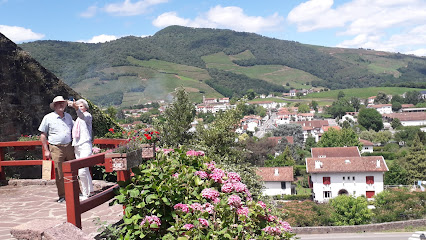
Markets, malls and hidden boutiques
Pyrénées Andorra
Explore Pyrénées Andorra: A shopping and dining destination that combines the best of fashion, food, and leisure in Andorra la Vella.

Estació Vallter 2000
Experience the thrill of skiing and year-round adventure at Estació Vallter 2000, a family-friendly ski resort in the breathtaking Pyrenees.
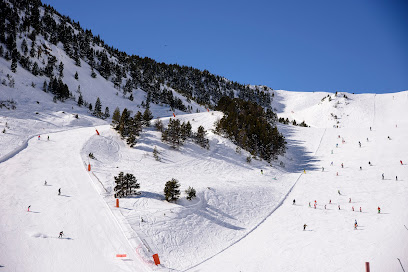
Verneda Camping Mountain Resort
Discover the beauty of the Pyrenees at Verneda Camping Mountain Resort, a perfect blend of adventure, comfort, and nature.
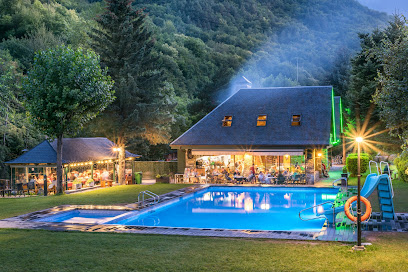
Intersport BIZANOS
Explore top-quality athletic apparel and equipment at Intersport BIZANOS, the go-to sportswear store in Bizanos, France.

Viladomat
Explore Viladomat in Andorra: your go-to sporting goods store for skiing, cycling, and outdoor adventures.
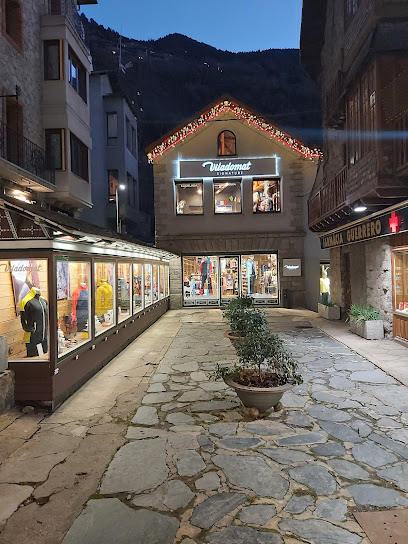
Decathlon Hendaye
Explore the best of outdoor adventure at Decathlon Hendaye, your ultimate destination for sporting goods, bicycles, and camping gear in France.
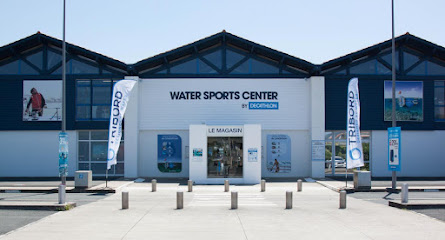
Sport 2000 Sports Mountains - Location ski Font Romeu
Discover the best ski rental experience in Font Romeu at Sport 2000, offering quality gear and expert service for your mountain adventures.
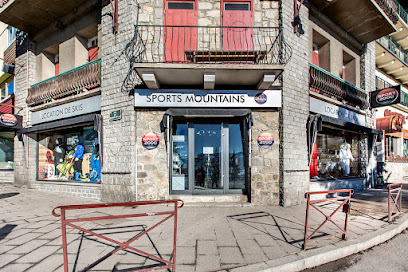
Esports Vivac
Discover a vibrant sporting goods store in Camprodon, offering youth clothing and athletic gear for all your outdoor adventures.
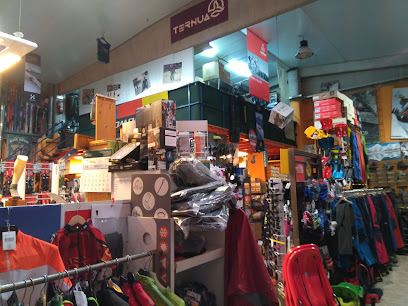
Barrankisme
Discover the ultimate adventure sports experience at Barrankisme in Rialp, where nature meets adrenaline in a breathtaking setting.
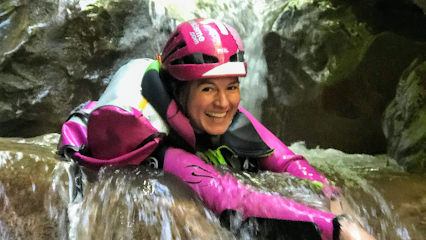
Cycl'in Pyrénées
Experience the thrill of cycling in the majestic Pyrenees with Cycl'in Pyrénées, offering rentals, repairs, and expert guidance for all cycling enthusiasts.
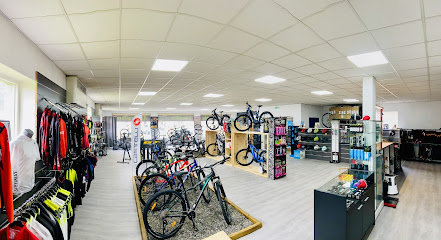
fnac Andorra
Explore the latest electronics and multimedia treasures at Fnac Andorra, your go-to shop in El Pas de la Casa for tech enthusiasts.
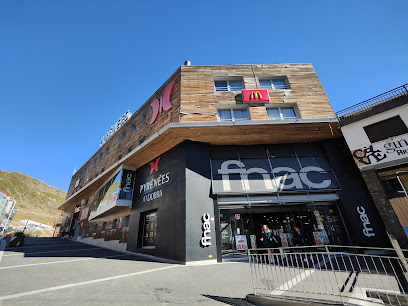
Bike & Py
Discover the beauty of Lourdes on two wheels with Bike & Py, your go-to bicycle store, café, and travel hub in the heart of the Pyrenees.
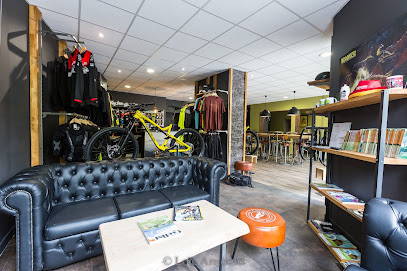
Intersport
Explore top-notch sportswear and equipment at Intersport in Andorra la Vella, your go-to destination for outdoor adventures and fitness.
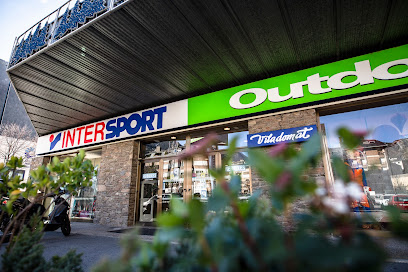
ANETO Sports
Discover ANETO Sports in Beaudean for all your cycling and skiing needs, offering rentals, gear, and expert advice in the heart of the Pyrenees.
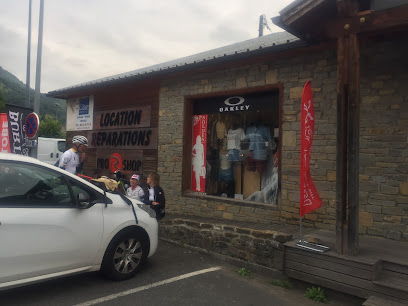
Ordiso Bicis and Barrancos
Discover Ordiso Bicis and Barrancos: Your hub for cycling and adventure sports in the stunning Huesca region.
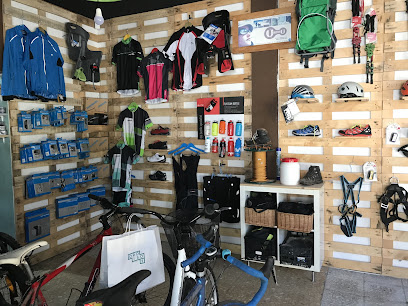
Essential bars & hidden hideouts
Parador de Bielsa
Experience the beauty of the Pyrenees at Parador de Bielsa, where exquisite dining meets comfortable accommodations in a stunning natural setting.

Sanctuary of Far
Experience the vibrant atmosphere and delectable Mediterranean flavors at the Sanctuary of Far, a charming bar and restaurant in Girona.
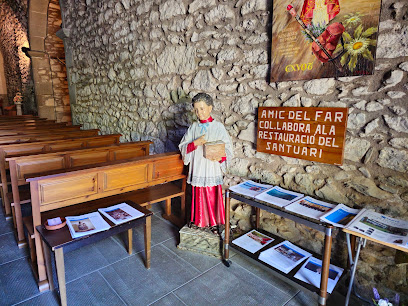
Boixetes de Cal Manel
Discover the authentic flavors of Catalonian cuisine at Boixetes de Cal Manel, a charming restaurant in Lleida offering a delightful culinary experience.
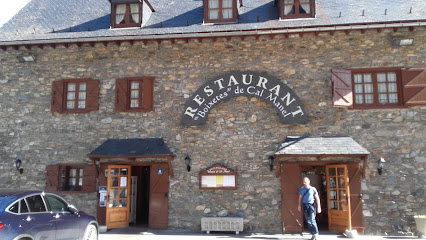
Hotel Restaurante El Acebo-Pirineo Aragones-Jaca
Discover comfort and culinary delights at Hotel Restaurante El Acebo, your gateway to the stunning Pyrenees in Jaca, Huesca.

Hostal Restaurante Asador Pañart
Experience the charm of the Pyrenees at Hostal Restaurante Asador Pañart, where delightful cuisine meets breathtaking views.

Auberge Logibar
Discover the charm of Auberge Logibar, a cozy inn in Larrau offering delicious French cuisine and a warm, inviting atmosphere.

Bar Restaurante Fes
Discover the authentic taste of Aínsa at Bar Restaurante Fes, where grilled delights and local charm await every visitor.
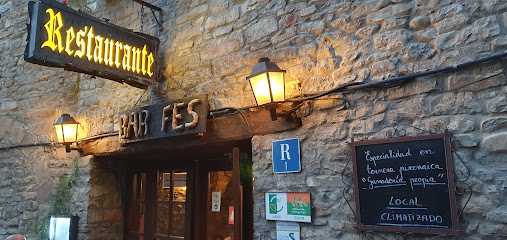
Hotel Rural Font Del Genil
Experience the rustic charm and serene beauty of Hotel Rural Font Del Genil, your perfect getaway in the heart of Lleida's countryside.
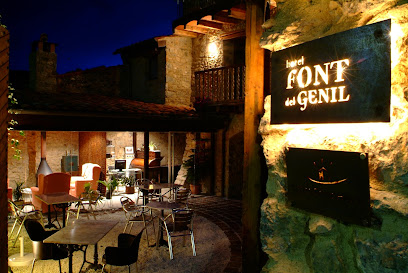
Cafè & Bistro E BO
Discover the delightful tastes of Cafè & Bistro E BO, where local flavors and cozy ambiance come together in the heart of Espot.
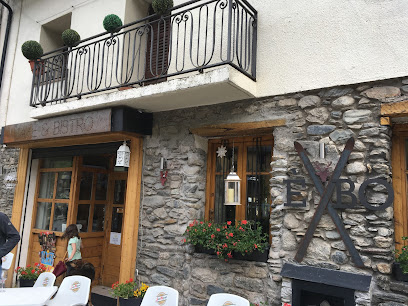
Refugio de Lizara
Experience the enchanting Refugio de Lizara, where mountain retreat meets culinary delight in the stunning Pyrenees.
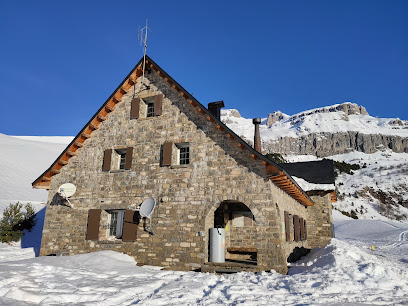
PINOTAGE - RESTAURANTE & CAFE - ARTIES
Discover the exquisite fusion of Catalan and South African cuisine at Pinotage Restaurant & Cafe in Arties, a culinary delight for all travelers.
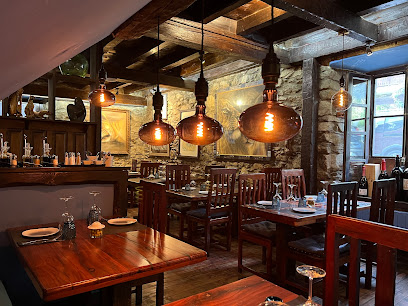
Hotel Parador de Canòlich
Discover the perfect family-friendly retreat at Hotel Parador de Canòlich, where comfort meets breathtaking nature in beautiful Andorra.
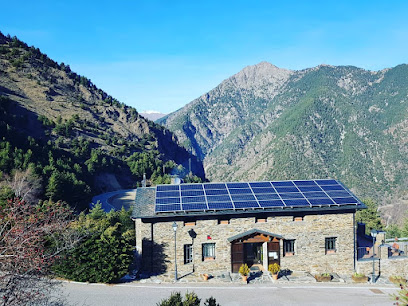
Restaurant Refugi Cap del Rec
Discover the charm of mountain dining at Refugi Cap del Rec, where traditional Catalan cuisine meets breathtaking alpine views for an unforgettable experience.
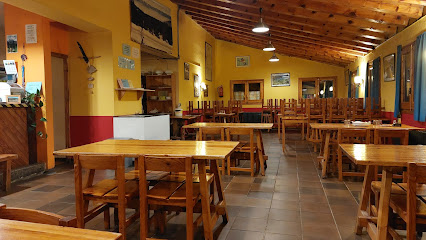
Restaurante La Catedral
Discover the authentic flavors of Huesca at Restaurante La Catedral, where tradition meets culinary excellence in a charming setting.
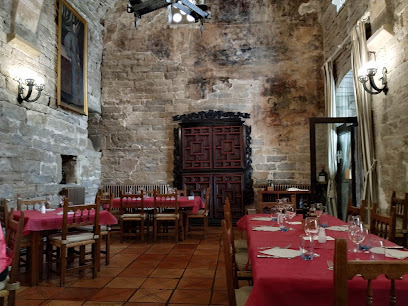
Local Phrases about Pyrenees Mountains
-
- HelloHola
[O-la] - GoodbyeAdiós
[A-di-ós] - YesSí
[See] - NoNo
[No] - Please/You're welcomePor favor/De nada
[Por fa-vor/De na-da] - Thank youGracias
[Gra-cias] - Excuse me/SorryPerdón/Lo siento
[Per-dón/Lo sien-to] - How are you?¿Cómo estás?
[Kó-mo es-tás] - Fine. And you?Bien. ¿Y tú?
[Bee-en. Ee too] - Do you speak English?¿Hablas inglés?
[A-blas in-glés] - I don't understandNo entiendo
[No en-tien-do]
- HelloHola
-
- I'd like to see the menu, pleaseMe gustaría ver el menú, por favor
[Me gus-ta-ree-a ver el me-nú, por fa-vor] - I don't eat meatNo como carne
[No ko-mo kar-ne] - Cheers!¡Salud!
[Sa-lud] - I would like to pay, pleaseMe gustaría pagar, por favor
[Me gus-ta-ree-a pa-gar, por fa-vor]
- I'd like to see the menu, pleaseMe gustaría ver el menú, por favor
-
- Help!¡Ayuda!
[A-yu-da] - Go away!¡Vete!
[Ve-te] - Call the Police!¡Llama a la policía!
[Ya-ma a la po-li-cía] - Call a doctor!¡Llama a un médico!
[Ya-ma a un mé-di-co] - I'm lostEstoy perdido/a
[Es-toy per-di-do/a] - I'm illEstoy enfermo/a
[Es-toy en-fer-mo/a]
- Help!¡Ayuda!
-
- I'd like to buy...Me gustaría comprar...
[Me gus-ta-ree-a kom-prar] - I'm just lookingSolo estoy mirando
[So-lo es-toy mi-ran-do] - How much is it?¿Cuánto cuesta?
[Kwan-to kues-ta] - That's too expensiveEsto es demasiado caro
[Es-to es de-ma-sia-do ka-ro] - Can you lower the price?¿Puede bajar el precio?
[Pwe-de ba-har el pre-sio]
- I'd like to buy...Me gustaría comprar...
-
- What time is it?¿Qué hora es?
[Ke o-ra es] - It's one o'clockEs la una
[Es la u-na] - Half past (10)Las diez y media
[Las diez i me-dia] - MorningMañana
[Ma-ña-na] - AfternoonTarde
[Tar-de] - EveningNoche
[No-che] - YesterdayAyer
[A-yer] - TodayHoy
[Hoy] - TomorrowMañana
[Ma-ña-na] - 1Uno
[U-no] - 2Dos
[Dos] - 3Tres
[Tres] - 4Cuatro
[Kwa-tro] - 5Cinco
[Sin-ko] - 6Seis
[Seis] - 7Siete
[Sje-te] - 8Ocho
[O-cho] - 9Nueve
[Nwe-ve] - 10Diez
[Diez]
- What time is it?¿Qué hora es?
-
- Where's a/the...?¿Dónde está el/la...?
[Don-de es-tá el/la] - What's the address?¿Cuál es la dirección?
[Kwal es la di-rek-ción] - Can you show me (on the map)?¿Puedes mostrarme (en el mapa)?
[Pwe-des mos-trar-me (en el ma-pa)] - When's the next (bus)?¿Cuándo es el próximo (autobús)?
[Kwan-do es el pró-ksi-mo (au-to-bús)] - A ticket (to ....)Un billete (a ...)
[Un bi-yet-te (a)]
- Where's a/the...?¿Dónde está el/la...?
History of Pyrenees Mountains
-
The Pyrenees Mountains have been home to the Basques for thousands of years. This ancient people have preserved their unique language, Euskara, which is considered one of the oldest languages in Europe. Archaeological evidence suggests that the Basques have lived in the region since prehistoric times, with remnants of their early settlements found throughout the mountains.
-
During the Roman Empire, the Pyrenees Mountains served as a natural border separating Roman Hispania from Gaul. The Romans built roads and fortifications to control the mountain passes, facilitating trade and military movements. The Via Augusta, one of the most important Roman roads, traversed the Pyrenees, leaving behind a legacy of Roman engineering that can still be seen today.
-
In the early Middle Ages, the Pyrenees were a contested frontier between Christian and Muslim territories during the Reconquista. The Kingdom of Navarre, with Pamplona as its capital, emerged as a significant power in the region. The Pyrenees also witnessed the rise of other medieval kingdoms, such as Aragon and Catalonia, which played crucial roles in the eventual Christian reconquest of the Iberian Peninsula.
-
The Treaty of the Pyrenees, signed in 1659, marked the end of the Franco-Spanish War and established the Pyrenees as the border between France and Spain. This treaty significantly altered the political landscape of the region, with Spain ceding territories north of the mountains to France. The agreement also brought an end to centuries of conflict, fostering a period of relative peace and stability in the region.
-
In the 19th century, the Pyrenees became a battleground during the Carlist Wars, a series of civil wars in Spain over succession disputes. The rugged terrain provided a strategic advantage to the Carlist forces, who fought against the central government's troops. These wars had a profound impact on the local population and left a lasting legacy on the region's cultural and political landscape.
-
The Pyrenees played a significant role during Francisco Franco's dictatorship in Spain (1939-1975). The mountains served as a refuge for anti-Franco guerrillas and a route for those fleeing the regime. The harsh terrain and challenging conditions of the Pyrenees mirrored the struggle of those fighting for freedom and democracy. Today, the region is a testament to the resilience and spirit of its people.
-
The Pyrenees are rich in cultural heritage, with vibrant traditions and festivals that celebrate the region's history. One of the most famous is the 'Feria de Abril' in Jaca, a festival that features traditional music, dance, and food. The region also boasts a wealth of folklore, including tales of mythical creatures and legends that have been passed down through generations. These cultural expressions offer a glimpse into the enduring spirit and identity of the Pyrenees.
Pyrenees Mountains Essentials
-
The Pyrenees Mountains in Spain can be accessed through several major cities, including Barcelona, Zaragoza, and Pamplona. The nearest international airports are located in these cities. From Barcelona or Zaragoza, you can take a train or a bus to towns like Jaca, Huesca, or Vielha, which serve as gateways to the Pyrenees. Car rentals are also widely available and can provide more flexibility for exploring the region.
-
Public transportation in the Pyrenees includes a network of buses and trains that connect major towns and villages. However, the best way to explore the mountains and remote areas is by car. Car rentals are available in major cities and towns. Cycling is also popular, with many routes available for both road biking and mountain biking. For those who prefer guided tours, plenty of local companies offer bus and van tours.
-
The official currency in Spain is the Euro (EUR). Credit and debit cards are widely accepted in hotels, restaurants, and shops. However, it is advisable to carry some cash, especially when visiting remote areas and small villages. ATMs are available in most towns, but they may be scarce in more rural areas.
-
The Pyrenees Mountains are generally safe for tourists. However, standard safety precautions should be taken. Avoid hiking alone in remote areas, and always inform someone of your plans. Petty crime, such as pickpocketing, can occur in crowded places and tourist hotspots, so keep an eye on your belongings. While there aren't specific high-crime areas targeting tourists, it is always best to stay vigilant.
-
In case of an emergency, dial 112 for immediate assistance, which is the emergency number for all of Spain. Medical facilities are available in larger towns, but in remote areas, you may need to travel to the nearest town for care. It is recommended to have travel insurance that covers medical emergencies. Additionally, always carry a basic first aid kit when hiking or exploring remote areas.
-
Fashion: Do wear comfortable and appropriate clothing for the mountains, including good hiking shoes. Don't wear flashy or overly revealing clothing. Religion: Do respect local customs and traditions, especially in religious sites. Remove hats and cover your shoulders when entering churches. Public Transport: Do be punctual and respectful to other passengers. Don't be loud or disruptive. Greetings: Do greet people with a handshake or a simple 'Hola'. In more formal settings, a light kiss on both cheeks is common. Eating & Drinking: Do try local specialties and be open to traditional dishes. Don't refuse hospitality, as it is considered impolite.
-
To experience the Pyrenees Mountains like a local, visit the traditional markets where you can buy local produce and crafts. Participate in local festivals and events, which are often rich in culture and history. Engage with locals, as they are usually friendly and willing to share stories about the region. Don't miss visiting the many small villages, each with its own unique charm and history. For a truly local experience, try staying in a 'casa rural' (rural house) or a family-run guesthouse.
Trending Landmarks in Pyrenees Mountains
-
Parc national des Pyrénées
-
Loarre Castle
-
Ordesa y Monte Perdido National Park
-
Regional Park of the Catalan Pyrenees
-
Pont d'Espagne
-
Aigüestortes i Estany de Sant Maurici National Park
-
Monasterio nuevo de San Juan de la peña
-
Saut deth Pish
-
Pyrenees
-
Ibón de Piedrafita
-
Parc Natural de l'Alt Pirineu
-
Requesens Castle
-
Cascada del Estrecho
-
Pic d'Ansabère
-
Pre-Pyrenees
Nearby Cities to Pyrenees Mountains
-
Things To Do in La Massana
-
Things To Do in El Serrat
-
Things To Do in Ordino
-
Things To Do in Andorra la Vella
-
Things To Do in Escaldes-Engordany
-
Things To Do in Encamp
-
Things To Do in Canillo
-
Things To Do in Soldeu
-
Things To Do in Pas de la Casa
-
Things To Do in Lourdes
-
Things To Do in Toulouse
-
Things To Do in Lleida
-
Things To Do in Huesca
-
Things To Do in Girona
-
Things To Do in Barcelona













